Search
Remove Ads
Advertisement
Summary 
Loading AI-generated summary based on World History Encyclopedia articles ...
Search Results
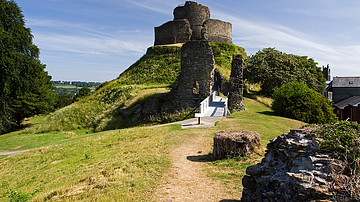
Definition
Motte and Bailey Castle
The motte and bailey castle was an early form of medieval fortification especially popular with the Normans in northern France and Britain during the 11th century CE. A single tower was built on (or partially within) the motte or earth mound...
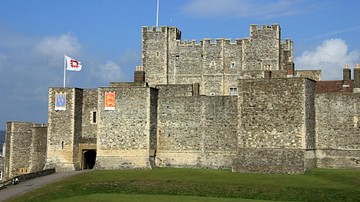
Definition
Medieval Castle
Medieval castles were built from the 11th century CE for rulers to demonstrate their wealth and power to the local populace, to provide a place of defence and safe retreat in the case of attack, defend strategically important sites like river...
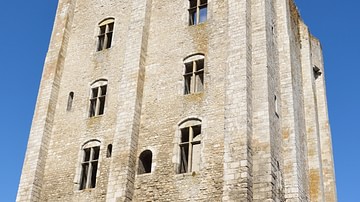
Definition
Castle Keep - The Safest Place in a Medieval Castle
The keep, located within a courtyard and surrounded by a curtain wall, was the heart of a medieval castle. The hall keep was a low building while the tower keep or donjon could have three or more floors and be topped by turrets and battlements...

Image
Motte and Bailey Castle, Bayeux Tapestry
A detail from the Bayeux tapestry showing the motte and bailey structure of Dinan during the 11th century Norman conquest of Britain. The wooden palisade sits atop the motte or mound. (Centre Guillaume le Conquérant, Bayeux, France)
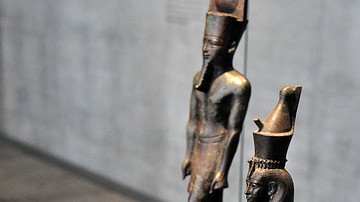
Article
Egyptian Gods - The Complete List
The gods and goddesses of Ancient Egypt were an integral part of the people's everyday lives for over 3,000 years. There were over 2,000 deities in the Egyptian pantheon, many whose names are well known - Isis, Osiris, Horus, Amun, Ra, Hathor...
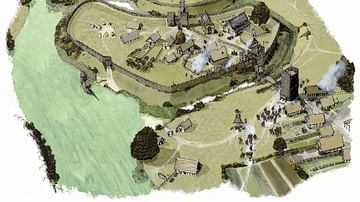
Image
Motte and Bailey Castle Diagram
A diagram of the motte-and-bailey castle of Huntingdon Hill, England. 11th century CE. Huntingdon was an urban centre with a mint, a market and several churches. The castle's construction was initiated by William the Conqueror in 1068 to...

Article
The Household Staff in an English Medieval Castle
An English medieval castle, if a large one, could have a household staff of at least 50 people, which included all manner of specialised and skilled workers such as cooks, grooms, carpenters, masons, falconers, and musicians, as well as a...
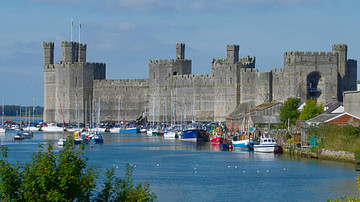
Definition
Caernarfon Castle
Caernarfon Castle (aka Caernarvon) is located in North Wales and was first built from 1283 CE by Edward I of England (r. 1272-1307 CE) to help, along with several other major castles, control the newly conquered area. As the administrative...
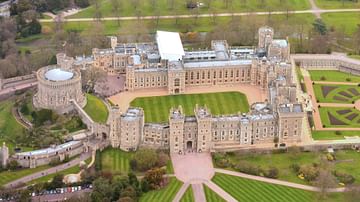
Definition
Windsor Castle
Windsor Castle is located in Berkshire, England, and was built as a motte and bailey castle by William the Conqueror (r. 1066-1087). Converted into stone by Henry II of England (r. 1165-1179), the shell keep tower was rebuilt by Edward III...
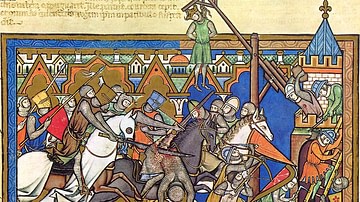
Article
Siege Warfare in Medieval Europe
Siege tactics were a crucial part of medieval warfare, especially from the 11th century CE when castles became more widespread in Europe and sieges outnumbered pitched battles. Castles and fortified cities offered protection to both the local...